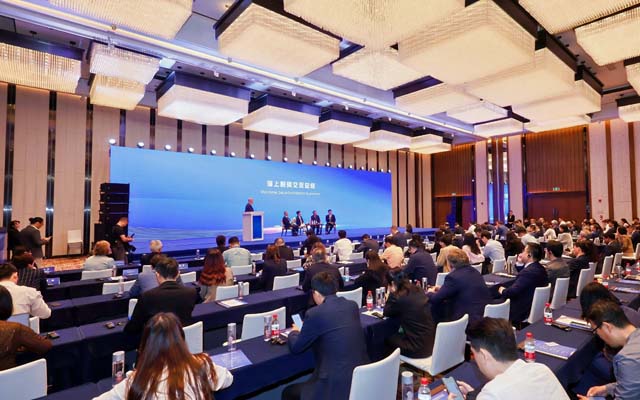Bureau Veritas Marine & Offshore and the Hong Kong Chamber of Shipping recently held a workshop event, the Shenzhen-Hong Kong Clean Energy Supply Chain Workshop, in Yantian, which emphasised Hong Kong’s strategic role in advancing clean energy adoption within the Greater Bay Area (GBA) and outlined practical recommendations to decarbonise the region’s maritime ecosystem.
A clear maritime vision for Hong Kong is considered essential to align with initiatives including the Hong Kong Chief Executive’s Policy Address 2024 and the Action Plan on Fuel Bunkering. This vision should capitalise on Hong Kong’s strengths as a global maritime and logistics leader, foster cooperation with Mainland GBA partners, and attract international enterprises to drive innovation and sustainability.
During the Workshop, in-depth discussions on the path to maritime decarbonisation led to a consensus that the promotion of alternative green fuels and the advancement of electrification remain the two core pathways for achieving this goal. China is currently one of the major suppliers of alternative energies such as green methanol, and Hong Kong should leverage its role as a ‘super-connector’ to unlock the potential for cost-competitive green marine fuel supply and export from China. Additionally, efforts should be made to establish Hong Kong as one of the preferred ports for berthing and green fuel bunkering.
Actionable next steps proposed at the Workshop include:
- Conduct demonstration of ship‑to‑ship methanol bunkering by 2025, alongside the approval process
- Install shore power at the Cruise Terminal and the container terminals by 2026
- Establish a GBA green energy supply chain alliance and develop green corridors
- Build Hong Kong into an alternative fuels trading and certification hub
- Position Hong Kong as an international hub for dialogue and deliberation on global maritime issues
- Cooperate with mainland bodies to showcase China’s rapid advancements in maritime-related fuels and technology, promoting global green shipping
- Consider new electrification policies for local vessels in Hong Kong waters and explore electrification policies for non-ocean-going vessels in GBA waters, in cooperation with Shenzhen.
Partnering with the Hong Kong University of Science and Technology, the findings from the Workshop will be refined into a research report, which will be submitted to relevant government departments in early 2025. Regular follow-up and in-depth discussions on this topic will be conducted.
Image: Shenzhen-Hong Kong Clean Energy Supply Chain Workshop (source: Bureau Veritas)



